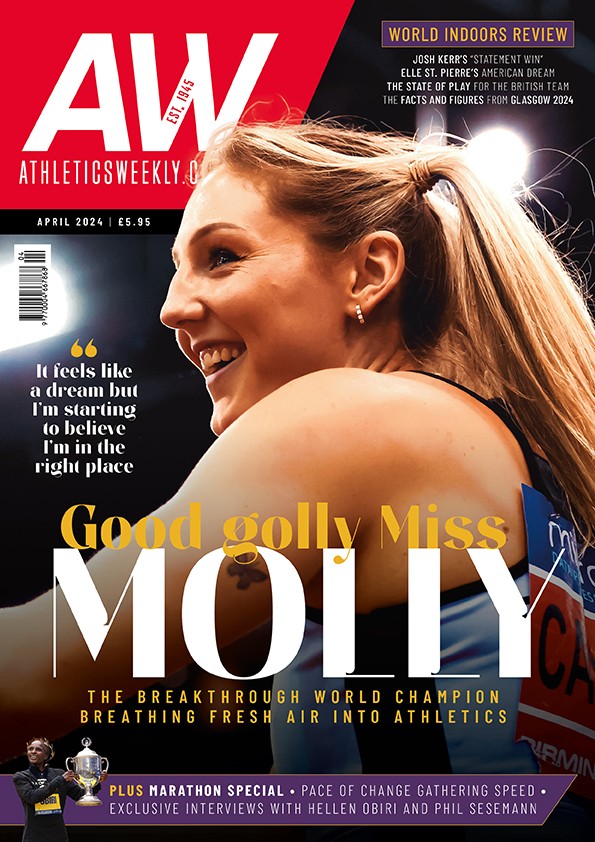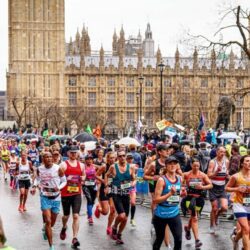Irish steeplechaser Sara Treacy outlines to Emily Moss how she combined working as a junior doctor with training to reach the Olympic final
I was a bit overwhelmed at running in the Bird’s Nest Stadium in 2015. But it prepared me for what to expect at the Rio Olympics and I loved it.
Falling over in the heats at the Olympics was heartbreaking. I was on for the run of my life, as I was aggressive and with the top group, and I thought I would qualify. Initially when I finished, I hadn’t realised the Irish team had put in a protest, so I was delighted to be put through to the final. You can’t top the experience of standing on the start line at an Olympic final.
When I fell over, I just thought ‘come on, get back up again, the Olympics doesn’t end here’. I was winded for about 200m but after that got my pace up again and still ran 9:46. I didn’t really reflect on it and realise what had happened until after I had finished.
I had a holiday in Rio after my race. I had a full week after the final to do what I wanted and enjoy being part of the world’s biggest sporting event. My family had come out so we could really enjoy everything that was on offer and soak up some of the culture.
I only got into the steeplechase three years ago. I had a bit of a breakthrough at university and won BUCS medals. However, I missed the 2013 season and after that, aged 25, I decided that it was my last chance to change events. I love the training for steeplechase and I am learning more and more about the event as the months and years pass by.
I train with many of my best friends. It is a strong squad, coached by Bud Baldaro, and we all have different strengths, which is really useful for the different training sessions we do.
My favourite training session is 10x400m. I alternate between a lap over the barriers at steeplechase race pace and a lap on the flat (at 3000m pace with two minutes’ rest between). I also find that 1000m reps at race pace are a good indicator of what you can do at certain time, but it isn’t the most enjoyable training session.
I work as a junior doctor. I work less than full-time, so about 30 hours a week. I still do my share of nights, but I just try and arrange them away from big races. I make it work by being organised with having food ready and often driving to work before rush hour and running from work. It’s about being adaptable and I often have to change my training around to fit around work.
I have to perform at my best at work. I don’t want to be tired for training, but I can’t be tired for a 12.5-hour shift at work either. So, I sit down with Bud regularly and we fit the key training sessions in based around when I am working. We slot everything in around that. I often have to move training around during the week, but I feel that being consistent over the year has led to me improving.
I really love cross country. It’s all about getting mucky, running in the rain and just laughing about it. I like the camaraderie. I don’t get nervous for it and it is good strength and endurance training for the summer. I wouldn’t miss it.
I try to think of nothing when I am running to really clear my head. That’s why I like running with other people.
Being Irish, I am really inspired by the achievements of Sonia O’Sullivan. But I am also inspired by all the people I train with. They never cease to amaze me.
I get a lot of teasing. People in the UK have always teased me about my Irish accent but, having lived in the UK for many years, when I go back to Ireland they tease me about my lack of accent there now. I feel so welcome in the UK. Home is home and my heart is definitely Ireland, but at the same time, I love my life here. I wouldn’t change anything.
TYPICAL WEEK’S TRAINING
Winter training week (when doing heavy number of shifts on A&E)
Friday am: 45min run with core exercise session pm: Work in A&E department from 6pm-3am
Saturday am: Late morning/early afternoon session – 3 x 9min tempo runs off three minutes recovery and strides pm: Shift work 10pm-7.15am
Sunday (after a lie-in): 60min run with core exercise session pm: Shift work 10pm-7.15am
Monday am: 60min run pm: Work in A&E 3pm-11pm
Tuesday pm: 3pm-11pm work in A&E
Wednesday am: 45-50min run including 15 minutes of hilly fartlek pm: Work A&E 3-11pm
Thursday am: 7 miles steady to hard running pm: Work in A&E 5pm-1am
Winter training week (when doing a fewer number of hospital shifts)
Friday am: 2 x 2-mile tempo runs on road off 90 seconds recovery pm: 5 miles easy
Saturday: Rest
Sunday: Work 9am-6pm; fit in an easy 30min run
Monday pm (all after sleeping): Circuits, 60min run at a decent pace, strides and hurdles drills
Tuesday am: Run 35min pm: Group session: 2 x 1min 45sec, 2 x 3:10, 1 x 6:40, 2 x 3.10, 2 x 1:45 off 90 seconds recovery
Wednesday am: Long, steady run 75min pm: Gym session
Thursday am: Run 45min pm: Work 12pm-9pm
» The above sessions are specific to the individual athlete and may not be suitable for other athletes














